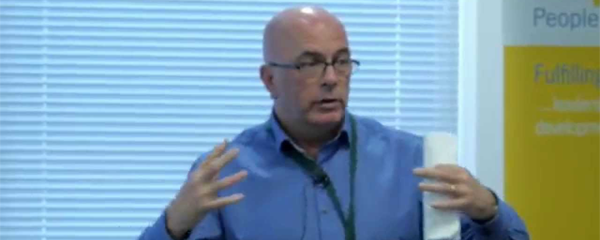Resilience is our greatest ally at moments like this. Resilience is founded in a belief that not only can you survive through difficult times, but it remains possible to achieve that which you set out to. The good news is you can train yourself in resilience, while things like staying healthy and cultivating a solid interpersonal network will act as resilience safeguards.
Stay healthy
Crises typically erode willpower. Our commitment to a healthy, balanced diet, regular exercise and eight hours of sleep goes out the window as soon we’re hit with a cascade of stress. But our physical health is especially important in times of heightened stress.
Your options may be limited right now, but sticking to a healthy diet is still highly achievable. As for exercise, YouTube is a great resource for free aerobic instruction and yoga tutorials. Some of the team at Happy have been doing PE with Joe Wicks for a workout in the mornings (with or without children in tow). Many home workout apps have extended their free trials at the moment too — for example, the Peloton app now has a 90 day free trial. You could also just slap on Girls Aloud’s Sound of the Underground and dance around your kitchen.
Experts advise that adults get between seven and nine hours of sleep per night. Put your phone and laptop away an hour before bed and give yourself a chance to wind down. Recognise that sleep is just as important as diet and fitness.
Limit news consumption
The 24-hour news cycle is great for compounding panic. It’s not so good for keeping stress at bay. Sure, it’s necessary to stay informed as the authorities update their action plan on the fly, but this is ultimately out of your control. Try to refrain from updating the news feed every 30 minutes and definitely don’t check it in the middle of the night.
Society’s trust in institutions and politicians is at an all-time low, but you should be extra wary of fringe news services. Stick to the big guns and prioritise long form journalistic and academic reports rather than minute-by-minute updates.
Don’t assume you know best
There’s a heckload of information floating around, which means your opinion on the crisis might be totally from your neighbour’s and mother’s. But even if you’re convinced of being on the right page while your mum’s spouting bananas conspiracy theories, getting into heated arguments benefits no one.
Don’t assume you know best and always maintain civility when discussing this topic. Employ reason and calm and make sure to engage with people from a place of empathy.
Stay in touch
Loneliness is proven to have life-shortening health consequences. This isn’t good news in a time of enforced isolation and social distancing, but it is possible to uphold substantive connections with your loved ones in these conditions.
By staying in touch we don’t mean scrolling a friend’s Facebook feed. Take a more proactive approach to contacting your nearest and dearest — give them a phone call or try sharing a meal and watching a TV show together via Skype. Netflix now has an extension for Google Chrome called Netflix Party which allows you to watch Netflix with others, synchronising your video and includes group chat and pause functions.
You can’t expect every conversation to be riveting, but it’s so important to simply get in touch and be reminded that we’re going through this together.























